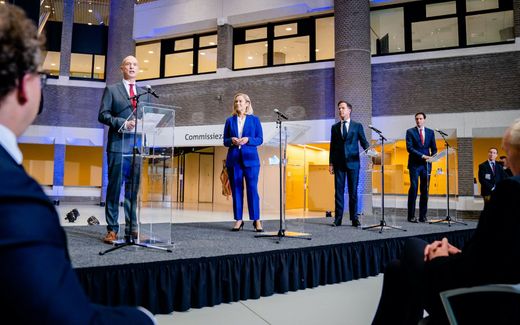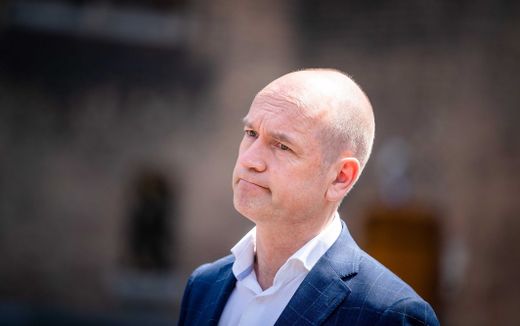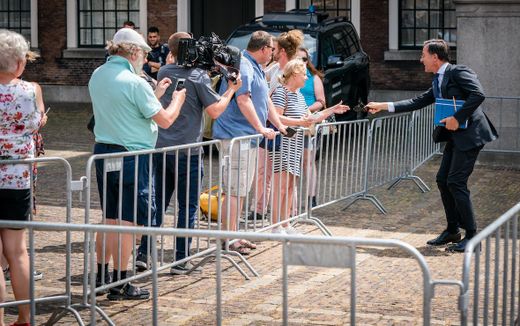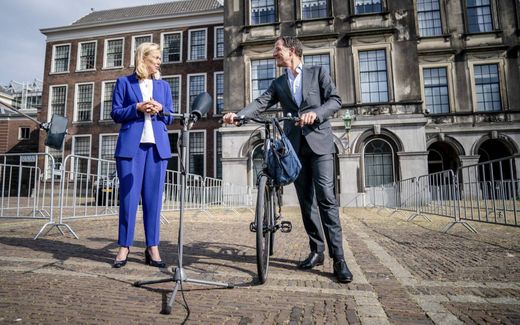Fragmented Chamber leads to third term for small Christian party
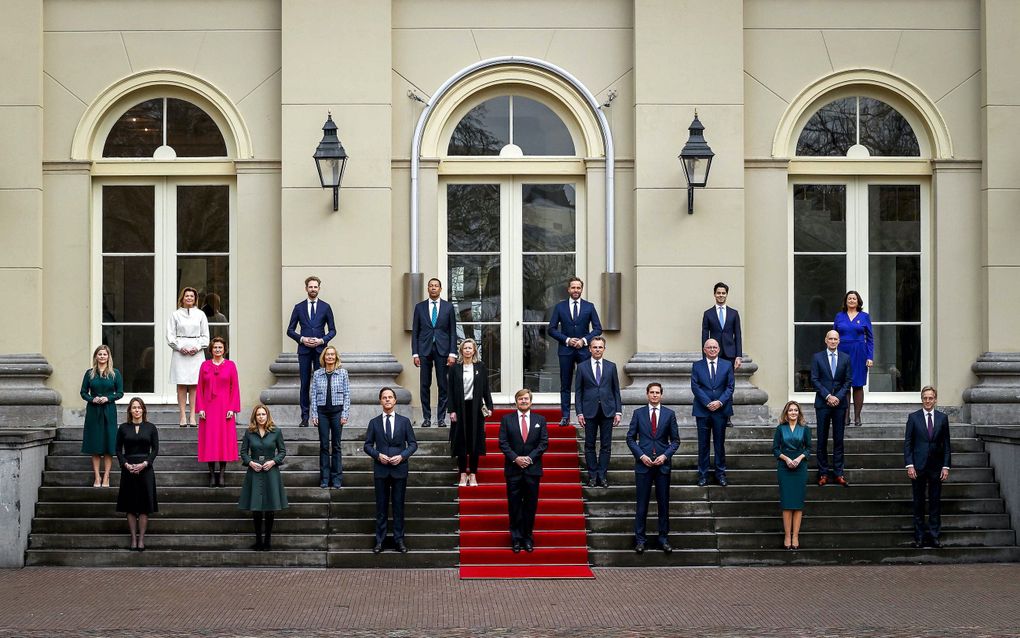
King Willem-Alexander and the fourth Rutte cabinet at the stairs of the Noordeinde Palace in the centre of The Hague. Photo EPA, Sem van der Wal
Western Europe
The small ChristenUnie in the Netherlands entered a government coalition for the third time. This is a direct result of the electoral fragmentation in the country.
King Willem-Alexander took the oaths of the new ministers on Monday morning. The fourth government of Prime Minister Mark Rutte has a maximum of 29 ministers and underministers. Three of them belong to the ChristenUnie.
Pro-life and Evangelical
The ChristenUnie is a merger of two small Reformed parties. Around the year 2000, the GPV (Reformed Political Alliance) and the RPF (Reformed Political Federation) came together in the ChristenUnie. The aim was to continue the political tradition of the famous Abraham Kuyper. The party favours a plural society with a maximum of freedom for Christians to engage. The party is very much pro-life and will defend the liberty of education, including Christian schools.
The party (and its forerunners) were connected with the Evangelical and Reformed engagement in the country during the ‘70s and ‘80s. The leader of the ChristenUnie, Gert-Jan Segers, himself has worked as a missionary in Egypt and shortly as a journalist for the Evangelical Broadcasting Corporation (Evangelische Omroep, EO).
The other Christian party in the coalition, CDA (Christian Democratic Appeal), is a so-called people’s party and has a much different style. The movement consists of Protestants and Catholics and had a central position in the country’s administration at all levels in the 20th century. The party does not have a direct religious basis, but the fundamentals are “inspired” by the Biblical message. Jews and Muslims are active in the party too. Conservative Christians have blamed the CDA for facilitating the legislation of abortion in the early ‘80s.

Witnessing motivation
In the past, it was unthinkable that a small party with 3 per cent of the votes could enter into a coalition. Until 1994, coalitions usually existed of two large parties. It was easy for them to ignore very principled Christian parties with a more witnessing motivation.
The new term of the ChristenUnie is no proof that secularisation is countered in the Dutch society. In fact, it is contrary to that. It was more so that the individualisation led to the fragmentation of the political landscape. Voters did not recognise themselves in large parties with long traditions and firm ideologies. The 2021 elections resulted in a Lower House with no less than 19 parties (over 150 seats).
The largest party (the Liberal VVD of Mr Rutte) has 22 per cent of the votes (34 seats). In the past, it was not exceptional for the largest party to have 35 per cent of the votes (and over 50 seats).

After the 2021 elections, it was necessary to have at least four parties to cover more than half of the seats in the Lower House. This led to the situation that the ChristenUnie could participate again in the government coalition.
Deep mistrust
“Rutte 4”, as the new government is called, consists of the same parties as “Rutte 3”. Despite of that, it took ten months to come to be sworn in. This had to do with deep mistrust between the political leaders that had to be solved first. The actual policy negotiations did not start before October.
At the presentation of the coalition program in December, it became clear that the sensitive ethical issues for the Christian parties around abortion and end-of-life were left to the parliamentary initiative. This can lead to the instability of the coalition. The program further mentions the so-called rainbow agreement for more LGBT rights and multiple parenthood. It is unclear what parts of this agreement will be translated into new legislation.
Related Articles


